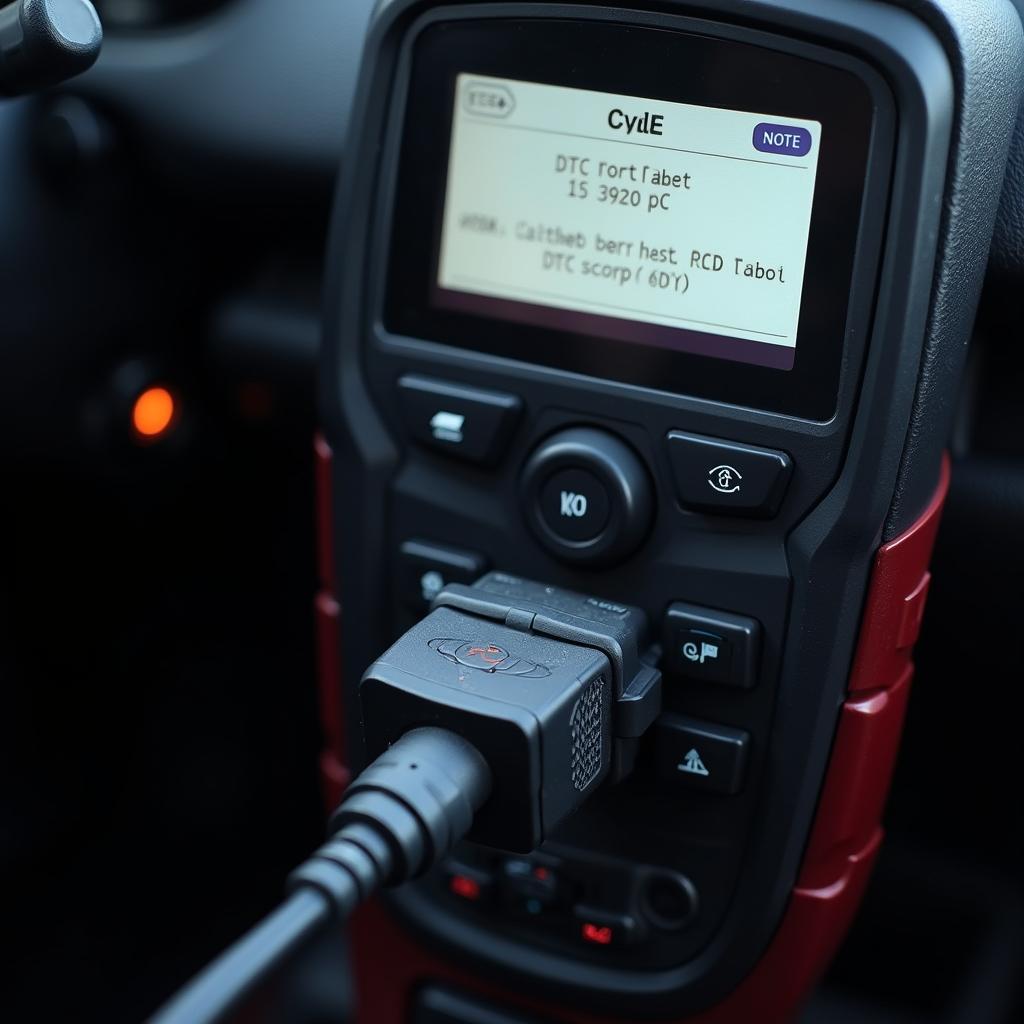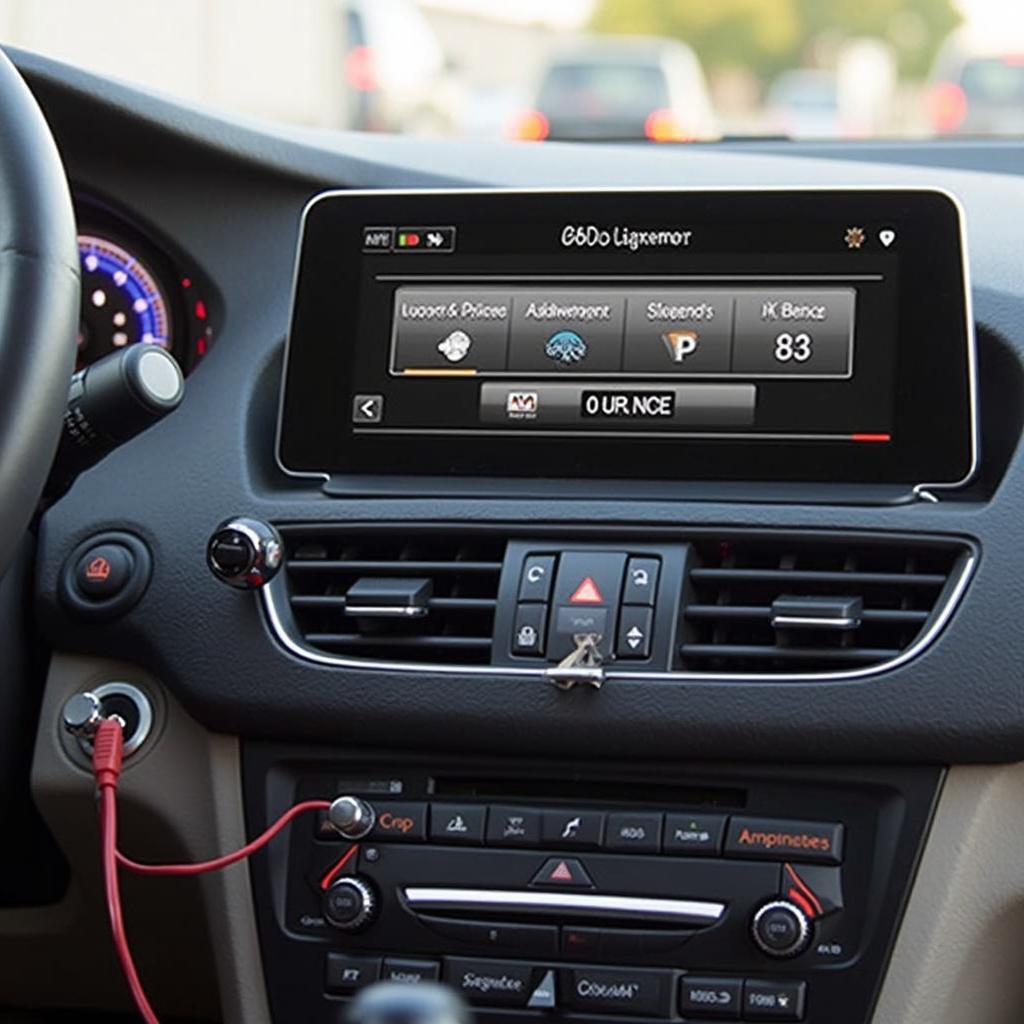Finding the Best Car Diagnostic Tool For Home Use can be daunting, especially with so many options available. Whether you’re a seasoned DIY mechanic or a car enthusiast looking to troubleshoot minor issues, having the right diagnostic tool can save you time, money, and frustration. This comprehensive guide will walk you through everything you need to know to make an informed decision and find the perfect tool for your needs.
Understanding Car Diagnostic Tools
Before we delve into the specifics, let’s clarify what car diagnostic tools are and why you might need one. Essentially, these tools act as a bridge between your car’s computer system and you. They allow you to read and understand the diagnostic trouble codes (DTCs) that your car’s onboard computer generates when it detects a problem.
 Car Diagnostic Tool Reading DTC
Car Diagnostic Tool Reading DTC
Why You Need a Car Diagnostic Tool at Home
Having a car diagnostic tool at your disposal empowers you to:
- Diagnose car problems early: Identify minor issues before they escalate into major (and expensive) repairs.
- Save money on mechanic fees: Diagnose simple problems yourself and avoid unnecessary trips to the mechanic.
- Gain a deeper understanding of your car: Monitor your car’s health, track performance, and stay ahead of potential issues.
- Negotiate repairs confidently: Armed with knowledge from your diagnostic tool, you can discuss repairs with your mechanic on a more level playing field.
Types of Car Diagnostic Tools for Home Use
There are several types of car diagnostic tools available, each with its own pros and cons:
1. Basic Code Readers: These entry-level devices are the most affordable option. They can read and clear basic DTCs, giving you a general idea of what might be wrong with your car. However, they typically don’t provide in-depth information or advanced functionalities.
2. OBD2 Scanners: A step up from basic code readers, OBD2 scanners offer more comprehensive diagnostics. They can access live data streams from your car’s sensors, allowing you to monitor engine performance, fuel economy, and other parameters in real-time.
 OBD2 Scanner Displaying Live Data
OBD2 Scanner Displaying Live Data
3. Professional-Grade Scan Tools: These high-end tools are typically used by professional mechanics. They offer the most comprehensive diagnostic capabilities, including advanced functionalities like bi-directional control, programming, and coding. However, they come with a hefty price tag and might be overkill for most home users.
Choosing the Right Tool: Factors to Consider
When choosing a car diagnostic tool, consider these factors:
- Your budget: Set a realistic budget and explore the options within your price range.
- Your technical expertise: If you’re a beginner, a basic code reader or OBD2 scanner might suffice. More advanced users might benefit from a professional-grade tool.
- Your car’s make and model: Some tools are specifically designed for certain car makes and models. Ensure compatibility before making a purchase.
- Features: Consider the features that are most important to you, such as live data streaming, ABS diagnostics, airbag system checks, etc.
- User-friendliness: Choose a tool with an intuitive interface and easy-to-understand instructions.
Top Recommended Car Diagnostic Tools for Home Use
[For budget-conscious users] The best car diagnostic tool 2016 remains a popular choice for its affordability and basic functionality.
[For users seeking advanced features] Consider exploring our comprehensive reviews of the top-rated OBD2 scanners in the market.
Conclusion
Investing in the best car diagnostic tool for home use is a smart move for any car owner. It empowers you to take control of your car’s maintenance, save money on repairs, and gain a deeper understanding of your vehicle. By carefully considering your needs and budget, you can find the perfect tool to keep your car running smoothly for years to come.

Leave a Reply